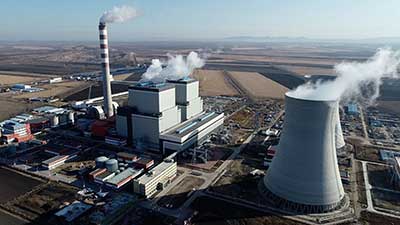Date: 03/01/2023
Relevance: GS-3: Conservation, environmental pollution and degradation.
Key Phrases: Short-Term Energy Security And Long-Term Decarbonisation, OPEC Plus One, Energy Conundrum, Securing A Sustainable Energy Source, Pan-India National Gas Pipeline Grid
Why in News?
- The international energy market has been disrupted by the Ukraine conflict and India will have to traverse the difficult situations of a volatile petroleum market without straying off the “green” course towards clean energy.
Why India Must Pivot The Needle Of Its Energy Compass Towards Short-Term Energy Security And Long-Term Decarbonisation?
- The energy market has fragmented and energy nationalism is the driving force behind policy.
- Even though the Ukraine conflict ends, Russia will not be allowed access to the western markets for as long as President Putin is incharge of the affairs resulting in the tightening energy embrace between Russia and China.
- OPEC plus one that is Saudi Arabia plus Russia has stepped outside the Western orbit. Saudi Arabia has made clear it intends to pursue a “Saudi first”, non-aligned approach to international relations including with the US.
- New centers of energy power are emerging around countries that have a large share of the metals, minerals, and components required for clean energy and China is currently the dominant power.
Do you know?
- Decarbonisation
- Decarbonisation is the process of reducing the amount of carbon, mainly carbon dioxide (CO2), sent into the atmosphere. Its objective is to achieve a low-emission global economy to attain climate neutrality via the energy transition.
- Net-zero Emissions:
- Net-zero, which is also referred to as carbon-neutrality, does not mean that a country would bring down its emissions to zero. That would be gross-zero, which means reaching a state where there are no emissions at all, a scenario hard to comprehend.
- Therefore, net-zero is a state in which a country’s emissions are compensated by absorption.
Can India Completely Phase Out Coal?
- Coal will remain the bulwark of India’s energy system for decades.
- It is no doubt the dirtiest of fuels, but it remains amongst, if not the cheapest, source of energy.
- Moreover, lakhs of people depend on the coal ecosystem for their livelihood.
- Thus, the option of phasing out coal whilst environmentally compelling is not yet a macroeconomic or social possibility.
Dealing with Current Energy Conundrum:
- Securing a sustainable energy source:
- Discounted Russian crude is an opportunistic panacea but it does not provide a sustainable cover to meet our requirements.
- To secure such a cover, the government must increase the productivity of its existing producing fields and additional resources should be allocated for accessing relevant enhanced oil recovery technologies.
- Securing a long-term supply relationship: India should leverage the country’s market potential to secure a long-term supply relationship with Saudi Arabia and an equity partnership with Iran.
- Enhancement of strategic petroleum reserves: It should enhance the strategic petroleum reserves to cover at least 30 days of consumption.
- Facilitating a smooth market mechanism: The unnecessary hindrances for the public sector petroleum companies created by the vigilant bodies like CBI/CVC/CAG should be prevented so that their traders can, without fear, take advantage of market volatility
- Pan-India national gas pipeline grid: The construction of a pan-India national gas pipeline grid should be expedited.
Interim Steps Needed For Balancing Livelihoods And Pushing Forward The Green Agenda:
- Increased R&D expenditure for coal gasification and carbon capture and sequestration technologies;
- setting a carbon tax
- The establishment of regulatory and monitoring mechanisms for measuring carbon emissions from industry.
- The closure of inefficient and old plants and a decision not to approve any new ones.
- In parallel, Niti Aayog together with a group of economists and energy experts needs to determine the competitiveness of coal versus solar on a full-cost basis as the energy security cannot be achieved by focusing only on the supply and distribution side of the equation.
Other Measures to Be Brought Onto This Year’s Policy Agenda:
- Upgradation of the transmission grid network:
- Allocation of funds for upgradation of the transmission grid network to render it resilient enough to absorb “clean” electrons on an intermittent basis.
- Addressing the underlying structural issues impeding the scaling up
of renewables:
- The repair of the balance sheets of state distribution companies (discoms), easing the procedures for the acquisition of land and the removal of regulatory and contract uncertainties are most important.
- Failure to sort out the finances of discoms will erode confidence in the sanctity of the Power Purchasing Agreements (PAAs) signed between them and renewable companies.
- Facilitation of mineral and chip diplomacy:
- It will take decades to harness the indigenous resources of the metals and minerals critical for clean energy and build up a domestic chip industry.
- In the interim, diplomats should secure diversified sources of supply to reduce the country’s vulnerability.
- Pushing the third generation clean energy technologies:
- The creation of an enabling ecosystem for developing and commercialising third-generation clean energy technologies like hydrogen, biofuels and modular nuclear reactors should be pushed.
Conclusion:
- Although India is not responsible for global warming, but it will be amongst the worst affected.
- Millions live around its coastline. Their livelihoods will be undermined by rising sea levels.
- Millions will also be affected by melting glaciers and extremes of temperatures.
- So irrespective of who is to blame, India has to stay on the path of decarbonisation. It cannot afford to develop first and clean up later.
Source: Indian Express
Mains Question:
Q. India must pivot the needle of its energy compass towards short-term energy security and long-term decarbonisation. Examine. (150 words).







